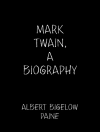Meet Lieutenant Flint: hard-edged and muscle-bound, radiating machismo—a bull of a soldier. In the opposite corner stands Captain Turner: with his pencil mustache and tailored shirts, he’s a Trick Soldier—smart, crisply-dressed, and always at attention. They’re fire and ice, oil and water… Sean Penn and Michael J. Fox in Casualties of War.
Ten years ago and a thousand miles away, they attended boot camp together. They didn’t get along then . . . and they don’t get along now. Reunited in the Haitian jungles, in the midst of a fierce rebel uprising, they confront the most dangerous enemy of all—each other.
It’s time for heroes to rise and cowards to fall, and in the case of Lieutenant Flint and Captain Turner, bravery runs deep. When brute strength confronts military honor, the true measure of a man is not in his fists, but in his heart.
A First Sergeant with the 20th United States Marine Corps Reserve, Hubbard knew exactly what it meant to be a Marine. As he wrote in 1935: “Most of the fiction written about [Marines] is of an intensely dramatic type, all do-or-die and Semper Fidelis.” But the reality, he said, was far different. “I’ve known the Corps from Quantico to Peiping, from the South Pacific to the West Indies, and I’ve never seen any flag-waving. The most refreshing part of the U.S.M.C. is that they get their orders … and do the job and that’s that.” It’s that kind of unique and pointed insight that he brings to stories like Trick Soldier.
Also includes the military adventures He Walked to War, in which Marine Sergeant E.Z. Go appears to take it easy, but always gets the job done … even if it’s hard as nails or dangerous as hell—in the end E.Z. does it; and Machine Gun 21, 000, the story of a soldier who loses a gun and faces a court martial, but finds a way to save the day.
عن المؤلف
With 19 New York Times bestsellers and more than 350 million copies of his works in circulation, L. Ron Hubbard is among the most acclaimed and widely read authors of our time. As a leading light of American Pulp Fiction through the 1930s and ’40s, he is further among the most influential authors of the modern age. Indeed, from Ray Bradbury to Stephen King, there is scarcely a master of imaginative tales who has not paid tribute to L. Ron Hubbard.












